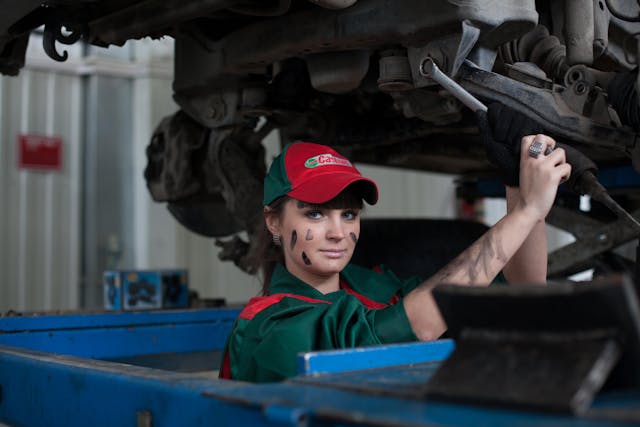
Introduction
The culinary world is increasingly embracing sustainability, and zero waste chef jobs are at the forefront of this movement. Zero waste chefs focus on minimizing food waste, using every part of the ingredient, and promoting eco-friendly cooking practices. If you’re passionate about cooking and committed to making a positive impact on the environment, a career as a zero waste chef might be the perfect fit for you.
The Importance of Zero Waste Cooking
Zero waste cooking aims to reduce food waste by utilizing all parts of ingredients, repurposing leftovers, and implementing sustainable practices in the kitchen. This approach not only helps the environment but also promotes creativity and resourcefulness in culinary arts. As consumers become more environmentally conscious, the demand for zero waste chefs is growing.
What Does a Zero Waste Chef Do?
Zero waste chefs focus on creating delicious meals while minimizing waste. Their responsibilities include:
- Ingredient Utilization: Using every part of an ingredient, from root to stem, to reduce waste.
- Menu Planning: Designing menus that incorporate leftover ingredients and minimize food waste.
- Sustainable Sourcing: Choosing locally sourced, seasonal, and organic ingredients to support sustainable agriculture.
- Waste Reduction Techniques: Implementing techniques such as composting, recycling, and repurposing food scraps.
- Education and Advocacy: Educating staff and customers about the importance of zero waste cooking and promoting sustainable practices.
Skills Required for Zero Waste Chefs
To excel in this field, zero waste chefs need a range of skills:
- Culinary Expertise: Proficiency in cooking techniques and recipe development.
- Creativity: Ability to create innovative dishes using unconventional ingredients.
- Resourcefulness: Finding ways to use every part of an ingredient and repurpose leftovers.
- Sustainability Knowledge: Understanding sustainable cooking practices and environmental impact.
- Communication Skills: Effectively communicating the importance of zero waste cooking to staff and customers.
Current Opportunities in Zero Waste Chef Jobs
The demand for zero waste chefs is growing, and there are several job opportunities available:
- Zero Waste Culinary Advisor: Winnow (Remote)
- Sustainability Chef: Surplus (Cambodia)
- Head Chef: Novella Hospitality Limited (London, UK)
- Chef de Partie: Applegarth Farm (Hindhead, UK)
- Chef (Bank): Abbeyfield Wey Valley Society (Farnham, UK)
- Production Operator: Radnor Hills Mineral Water Company (Whitton, UK)
How to Find Zero Waste Chef Jobs
Finding a job as a zero waste chef can be challenging, but there are several strategies to increase your chances:
- Networking: Connect with professionals in the industry through events, social media, and professional organizations.
- Internships: Gain experience and make connections by interning with sustainable restaurants and culinary programs.
- Job Boards: Use specialized job boards like the Sustainable Food Jobs Board to find relevant opportunities.
- Education: Pursue degrees or certifications in culinary arts, sustainability, or related fields to enhance your qualifications.
Spotlight on Pioneers in Zero Waste Cooking
Several chefs and organizations have paved the way for zero waste cooking, serving as inspiration for those entering the field:
- Winnow: An AI-powered food waste management company that hires zero waste culinary advisors.
- Surplus: The first zero waste plant-based restaurant in Cambodia, founded by Vojtech Végh.
- Novella Hospitality Limited: A hospitality company that emphasizes sustainable practices in its kitchens.
- Applegarth Farm: A farm that focuses on sustainable agriculture and zero waste cooking.
Innovations in Zero Waste Cooking
The zero waste cooking industry is driven by innovation. Here are some groundbreaking trends and technologies:
- Composting: Implementing composting systems to recycle food scraps into nutrient-rich soil.
- Upcycling: Repurposing food waste into new products, such as broths, sauces, and snacks.
- Sustainable Packaging: Using eco-friendly packaging materials to reduce waste.
- Food Recovery Programs: Partnering with food recovery organizations to donate excess food to those in need.
The Future of Zero Waste Chef Jobs
The future of cooking lies in sustainability. As the culinary world continues to evolve, the demand for zero waste chefs will grow. This presents an exciting opportunity for professionals to innovate and lead the way in creating a more sustainable food system.
Conclusion
Zero waste chef jobs offer a unique blend of culinary expertise and environmental responsibility. If you’re passionate about cooking and committed to making a positive impact, this career path could be the perfect fit for you. Embrace the challenge and join the movement towards a more sustainable future.









